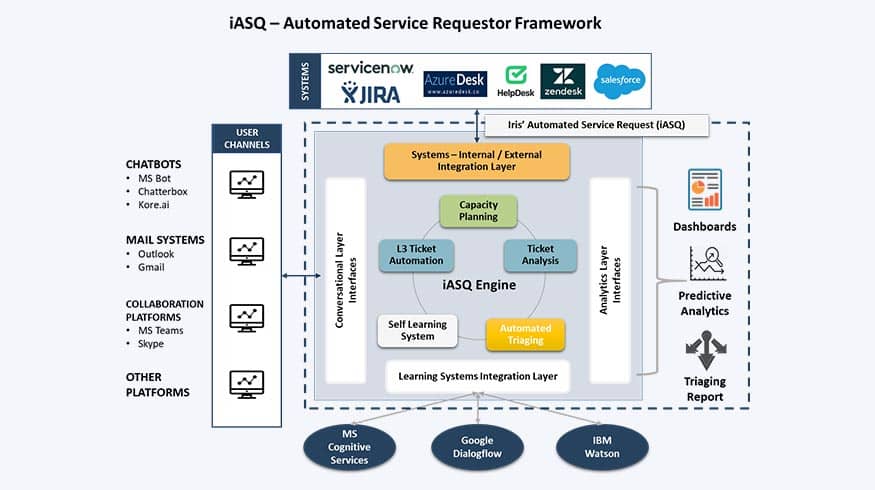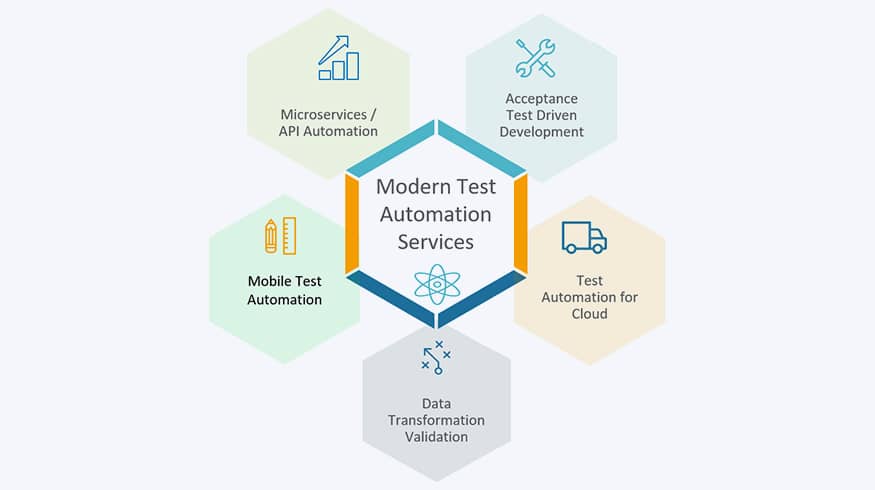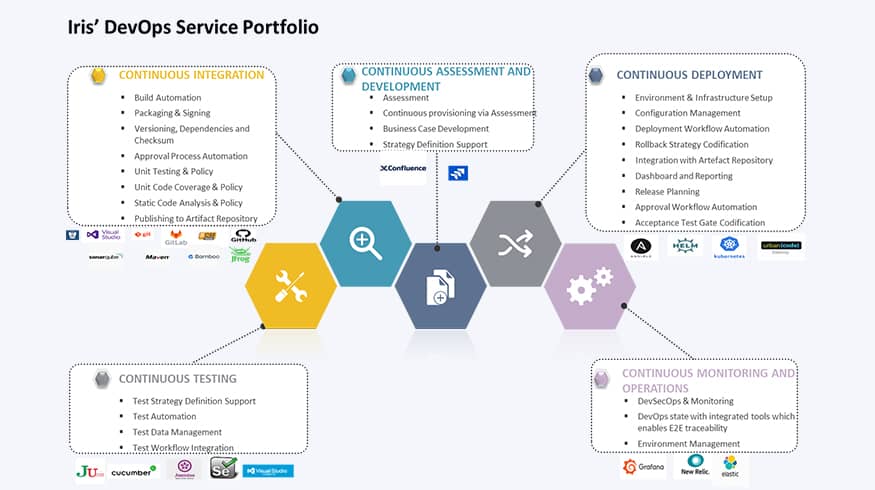Our Capabilities

Invest in smart automation, derive greater RoI
Given the heavy volume and complexity of data being shared today, integrating automated workflows and processes has become increasingly necessary in order to analyze and derive value from that data, and in a way that is as cost-effective as possible. Add unstructured data to the mix, and the intricacy multiplies.
Whether it is automating portions of a business process or automating portions of the software lifecycle, automation is everywhere and is delivering value. Aside from that, embracing intelligent automation is no longer an option today, but a critical requirement.

Agile ATDD
Acceptance test-driven development or ATDD is a methodology that helps software teams improve the quality of the product and reduce defects during testing by agreeing upon a set of acceptance criteria before development. The acceptance criteria are decided by a cross-functional team of business users and developers.
The Iris team has developed strong capabilities in ATDD and has executed several projects using the methodology. We use a cloud-based test automation framework and have successfully automated significant parts of the ATDD process using AI-based tools.
In a typical software development project, automation is introduced in later sprints. However, Iris has been successful in bringing in automation early in the lifecycle with in-sprint automation. We have been able to achieve 90% automation even in sprints as early as sprint 1 and 2. Early automation speeds up the development process, improves quality and reduces cost.
We have shortened sprint cycles for a client by almost 90% and improved script development speed by 80% through in-sprint automation with ATDD.

Tailored solutions for financial services firms
Reorder your business model and outcomes as regulatory and compliance standards tighten.
In the context of the financial services industry, agile and digital-first fintechs have significantly disrupted and changed the playing field for traditional financial service institutions. Furthermore, increasing regulation and compliance asks are adding to their costs. Many financial services businesses are being forced to revisit their business models, drive efficiencies and productivity while maintaining a handle on lower costs.
There is a growing need for intelligent automation – one where robotic process automation (RPA) and cognitive automation join hands to drive better business and customer outcomes and experiences. The intelligent automation journey has also witnessed shifts from the more instructive, traditional rules-driven RPA to the rapidly expanding adaptive standards that process unstructured data and contextual knowledge to make decisions automatically. The next step is towards cognitive automation by mimicking human processes of perception, memory, judgment and reasoning, using adaptive algorithms.
Customers are in various stages of adopting and enhancing automation as it applies to their business and technology spectrums. They need an intelligent automation strategy where people and machines deliver the desired value to the business.

Getting ahead of the test automation curve
Automation of end-to-end processes uses technologies such as RPA, AI, ML and NLP.
Test automation is maturing. Right from the waterfall model to the proliferation of Agile environments and shorter development cycles, testing needs to keep pace.
With a combination of autonomous, machine learning and artificial intelligence or AI-based tools, AI is fast becoming core to every industry and function. AI-based automation enables businesses to take their software to market faster and reap consummate business benefits that accompany agility, speed and reliability.
However, most enterprises need a suitable partner to help them make the shift.

Get resilient in DevOps automation
DevOps can lower operational costs and downtimes, and minimize tech debt.
The role of automation in DevOps is crucial in value creation for the customer. It advances speed, accuracy, consistency, reliability and the number of deliveries. A resilient DevOps automation strategy encapsulates everything right from building, deploying and monitoring without delays and compromise in quality.
DevOps is acknowledged as a necessity to deliver digital capabilities at a faster rate to businesses. It is fast becoming a cultural, procedural and structural change to software development, IT and infrastructure teams that makes an immediate impact on business by lowering operational cost, reducing downtime and minimizing tech debt.
Combine it with the fact that businesses are getting increasingly software-defined, thus also having a significant bearing on DevOps. To quickly respond to changing business needs and customer feedback faster, the path to DevOps automation is also continually evolving.
Getting DevOps automation right is key. DevOps is more than implementing the right tools and technologies. The success of DevOps depends upon driving technical and cultural shifts together. Businesses need to shift from the traditional phased delivery models to a continuous delivery mindset, made possible by better integrating teams within IT and employing more automated processes. It is about developing an end-to-end perspective while embracing continuous integration and delivery. To keep the necessary integration-delivery pace, businesses need to automate as much of the testing stage as possible.





